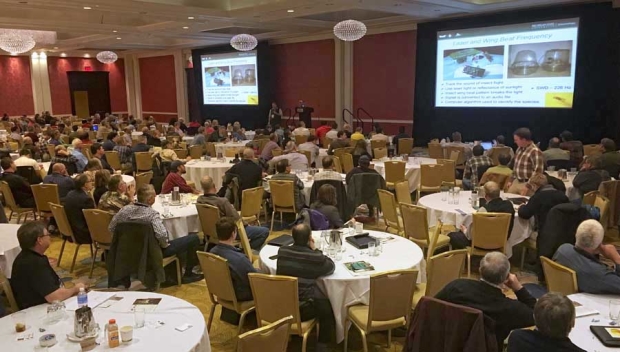
A record 404 people attended science-heavy presentations today (Monday) Feb. 8, 2016, at the International Fruit Tree Association in Grand Rapids, Michigan. Ross Courtney/Good Fruit Grower
A Michigan State University researcher gave a bleak view of fire blight as one of the highlights today (Monday), Day 3 at the International Fruit Tree Association in Grand Rapids, Michigan.
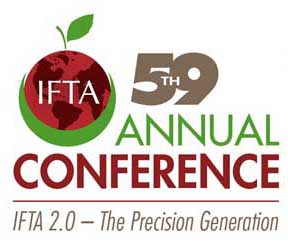 Dr. George Sundin, minced few words about the threat of fire blight, a quick-spreading bacterial infection that attacks apple and pear trees, especially some of the most profitable varieties.
Dr. George Sundin, minced few words about the threat of fire blight, a quick-spreading bacterial infection that attacks apple and pear trees, especially some of the most profitable varieties.
“Bad, bad, bad,” said Sundin, a professor at the Center for Integrated Plant Systems in East Lansing, Michigan.
Fuji, Gala and Honeycrisp, the three varieties of apples the conference organizers have dubbed “The Moneymakers,” are especially susceptible to fire blight, which unlike other pathogens spreads faster the faster the tree grows and thrives in modern high density orchards.
Sundin recommended antibiotic treatments at bloom and the use of growth regulators to keep fire blight under control. Moreover, he suggested all growers build fire blight into all their planning.
“I want everybody to think about fire blight,” he said.
Other speeches for the jam-packed, science-heavy day — all based around the theme of precision — included an evolution of precision orchard systems, pear rootstocks and peach tree structure.
The conference — attended this year in record numbers — organizers said, continues Tuesday through Friday.

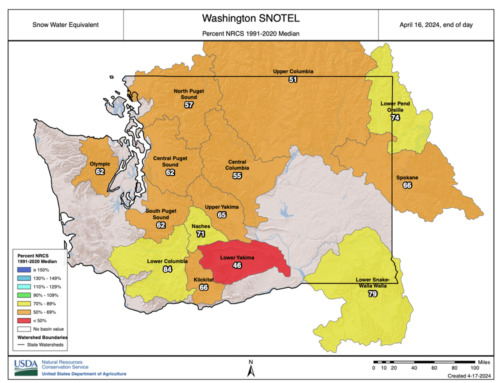
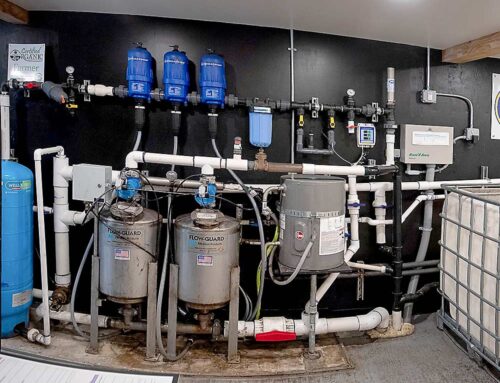
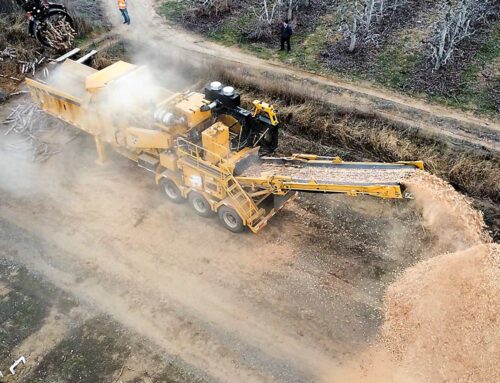
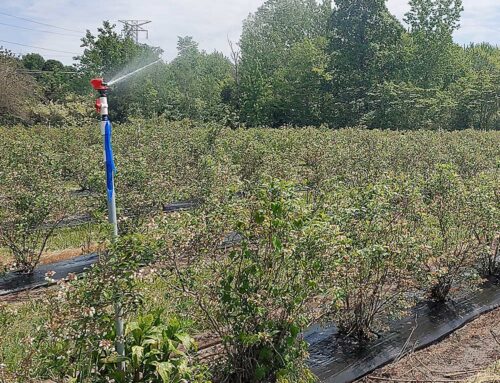

Leave A Comment